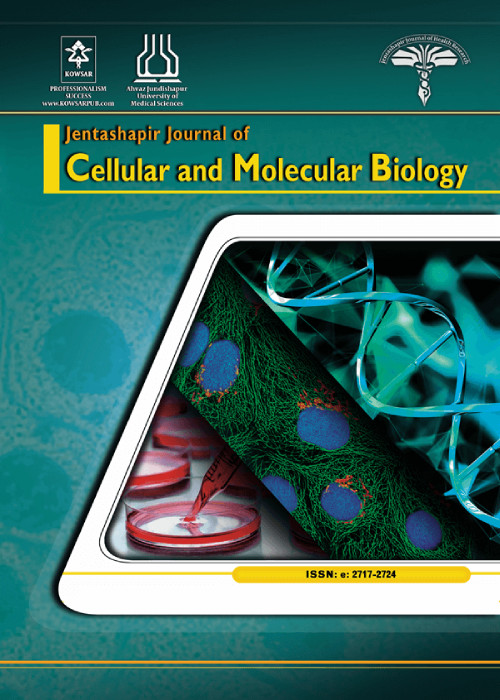Evaluation of the Effect of Magnetic Nanoparticles-Loaded 5-Fluorouracil (5-FU) on Colon Cell Line LS174T
Large intestine cancer, also known as colon cancer or rectal cancer, is a type of cancer that affects the colon or rectum. It is the third most common cause of cancer-related deaths worldwide, and in Iran, it ranks as the fourth most common cancer among men and the second most common cancer among women. Some of the common symptoms of this disease include intestinal rupture and obstruction, abdominal pain, nausea and vomiting, the presence of blood in the stool, and constant fatigue. Common methods of cancer treatment include surgery, radiation therapy, and chemotherapy. New methods of cancer treatment include gene therapy, hormone therapy, and nanotechnology. Nanoparticles (NPs), which contain particles in the size range of 1 to 100 nanometers, are used in nanotechnology. These NPs can originate from natural or human sources and have shown unprecedented growth in the field of research and applications of nanotechnology, especially in the treatment of cancer.
The objective of this study was to investigate the potential anticancer effect of a combination of iron oxide NPs loaded with 5-fluorouracil (5-FU) on the cell survival of the LS174T colon cancer cell line. 5-fluorouracil is a commonly used chemotherapy drug for treating various types of cancer, including colon cancer, and iron oxide NPs are known to be useful drug carriers for targeted drug delivery.
Nanoparticles were synthesized using the precipitation method, and X-ray diffraction analysis (XRD) and scanning electron microscopy (SEM) analysis were conducted. Cells were cultivated in RPMI 1640 medium, and the MTT assay was carried out to assess cell viability after treatment with multiple components, including NP+drug. Quantitative polymerase chain reaction (qPCR) was carried out to assess the expression of apoptotic genes, including BAX, BAD, and BCL-2.
The MTT results showed that all components, especially NP+drug, had acceptable cytotoxic effects on cancer cells. The expression of pro-apoptotic genes was elevated, and the expression of the anti-apoptotic gene was decreased after treatment with the same components, especially NP+drug.
The results showed that all the studied components, especially drug-loaded NPs, have great cytotoxic and pro-apoptotic effects on colon cancer cells and can be considered colon cancer therapy.
- حق عضویت دریافتی صرف حمایت از نشریات عضو و نگهداری، تکمیل و توسعه مگیران میشود.
- پرداخت حق اشتراک و دانلود مقالات اجازه بازنشر آن در سایر رسانههای چاپی و دیجیتال را به کاربر نمیدهد.


